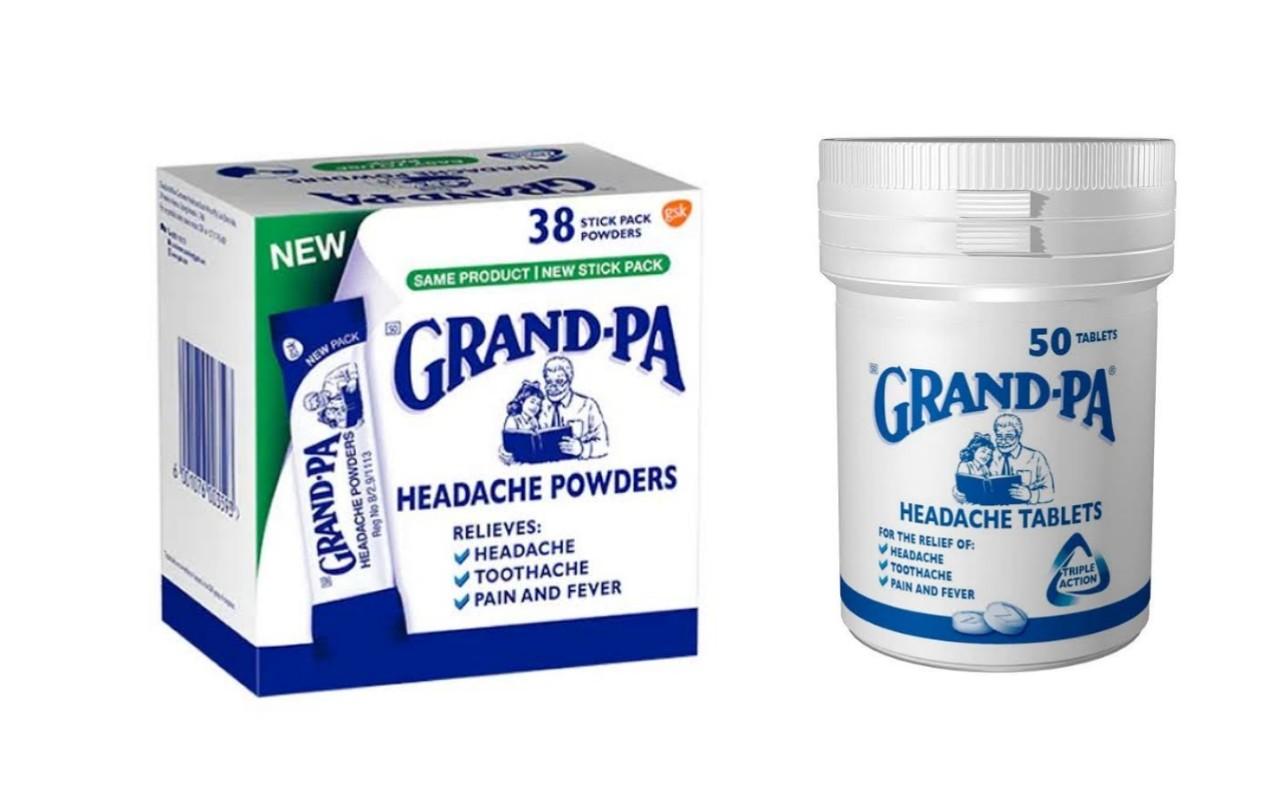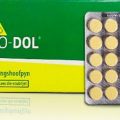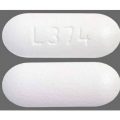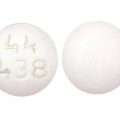Grand-Pa Headache Tablets is a combination medication containing aspirin 226.8 mg, paracetamol 162.0 mg, caffeine 32.4 mg. Grad-Pa Headache Tablets are used for the symptomatic relief of mild to moderate headaches, pain, and fever. It also comes as a powder but with the same ingredients.
Aspirin (salicylate) is a nonsteroidal anti-inflammatory drug (NSAID). Aspirin contains salicylate, a compound found in plants such as the willow tree and myrtle. Its use was first recorded around 4,000 years ago. Hippocrates used willow bark for relieving pain and fevers, and some people still use willow bark as a natural remedy for headaches and minor pain.
Aspirin works by blocking the effects of certain enzymes that create prostaglandins. This means less pain and less swelling. Aspirin works to reduce this pain and swelling because it is an analgesic (pain reliever), antipyretic (fever reducer), and anti-inflammatory (fights swelling and inflammation).
Paracetamol the other ingredient is a medication used to treat fever and mild to moderate pain. Paracetamol seems to work by blocking chemical messengers in the brain that tell us we have pain. Paracetamol also reduces fever by affecting the chemical messengers in an area of the brain that regulates body temperature.
How are Grand-Pa Headache Tablets taken?
Adult dosage: Take two tablets of grandpa pills with water every three hours. Should not be taken with other paracetamol-containing products.
Children: Do not give Grand-Pa Headache Tablets to children except it has been specifically prescribed for them by a pediatrician. Doctors do not usually recommend aspirin-containing medication for people under 18.
Do not use continuously for more than 10 days without consulting your doctor. Keep out of the reach of children.
What happens if I miss a dose?
Since Grand-Pa Headache Tablets are often used only when needed, you may not be on a dosing schedule. If you are using the medication regularly, use the missed dose as soon as you remember. If it is almost time for your next regularly scheduled dose, skip the missed dose and use your next dose as directed. Do not use extra medicine to make up for a missed dose.
What happens if I overdose?
Seek emergency medical attention if you think you have used too much of this medicine. The first signs of a Grand-Pa Headache Tablets overdose include loss of appetite, nausea, vomiting, stomach pain, sweating, and confusion or weakness. Later symptoms may include pain in your upper stomach, dark urine, and yellowing of your skin or the whites of your eyes.
What should I avoid?
Do not use any other over-the-counter cough, cold, allergy, or pain medication without first asking your doctor or pharmacist. Paracetamol and aspirin are contained in many combination medicines. If you use certain products together you may accidentally use too much paracetamol and aspirin. Read the label of any other medicine you are using to see if it contains aspirin, salicylate, paracetamol, acetaminophen, or APAP. Avoid drinking alcohol while taking this medication. Alcohol may increase your risk of liver damage while taking Grand-Pa Headache Tablets.
What are the side effects of Grand-Pa Headache Tablets?
The most common side effects of Grand-Pa Headache Tablets are:
- stomach or gut irritation
- indigestion
- nausea
- Skin rash
- Tiredness
- Loose stools
The following adverse effects are less common:
- worsening asthma symptoms
- vomiting
- stomach inflammation
- stomach bleeding
- bruising
Grand-Pa Headache Tablets can also have very serious side effects, such as bleeding in the brain or stomach or kidney failure. A rare side effect of daily low-dose aspirin is hemorrhagic stroke.
This is not a complete list of Grand-Pa Headache Tablets’ side effects and others that may occur. Call your doctor for medical advice about side effects. You may report side effects to FDA at 1-800-FDA-1088.
Storage instructions
Store in a cool (below 25 degrees C) dry place.






